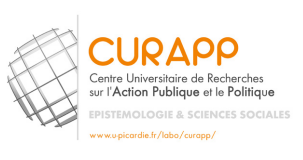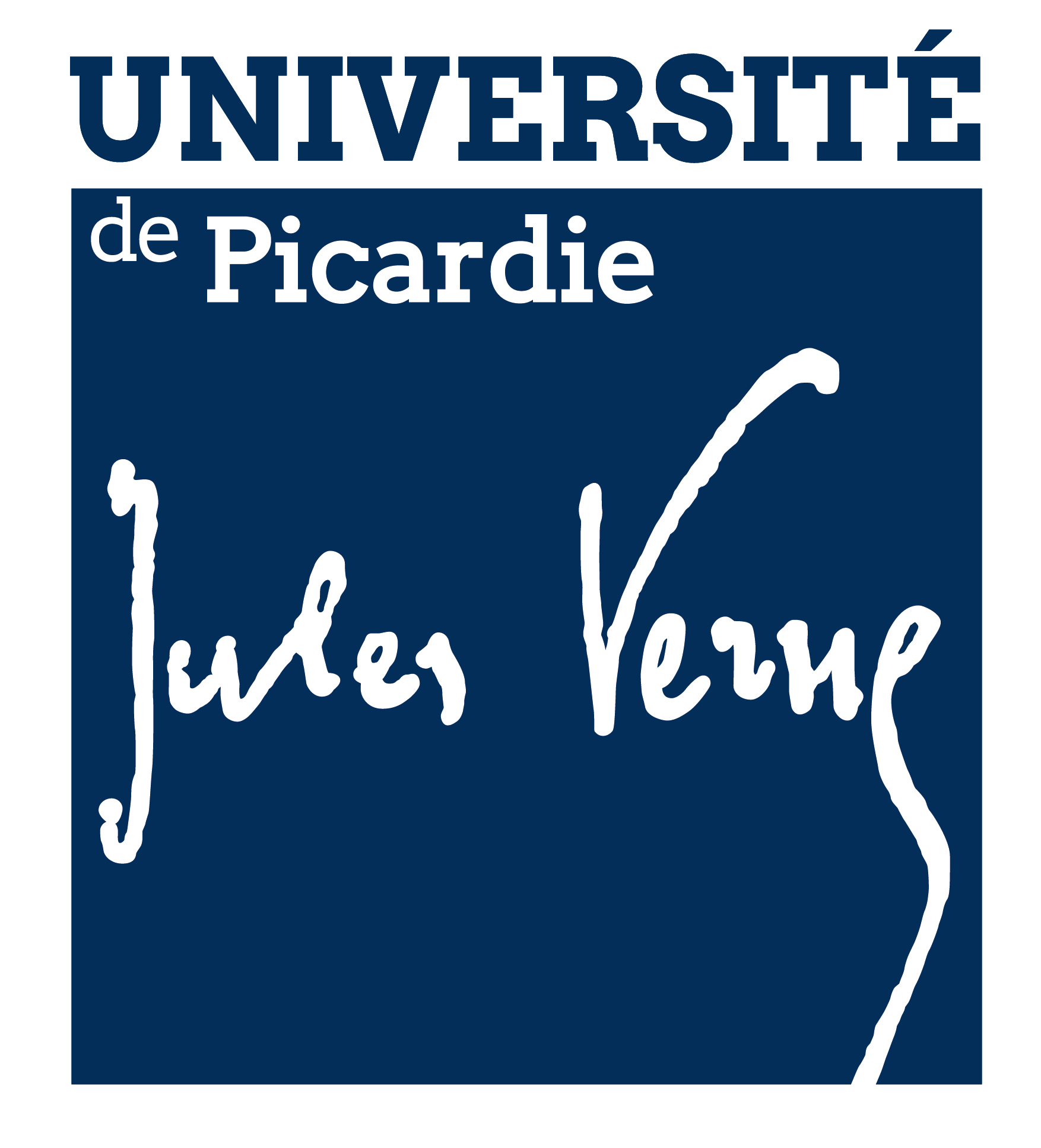-
Societal and economic transition & Risk management
University Centre for Research on Public Action and Politics - Epistemology and Social Sciences (CURAPP-ESS)
Research unit - UMR 7319
The CURAPP was created in 1971 within the Faculty of Law and Political Science of Amiens. Joint research unit since 2000, the CURAPP-ESS is a joint laboratory of the CNRS and the University of Picardie Jules Verne, integrating several disciplinary fields (political science, law, sociology, philosophy and science of education).
The team is composed of academics, CNRS researchers, PhD students and engineers who contribute to the openness and dynamism of research conducted both in a national and international context.
Originally focused on the study of the functions of the state in contemporary societies, CURAPP-ESS now covers a wide range of research in the social and legal sciences and philosophy. They range from the study of multi-scalar public actions (from local to global) to that of forms of politicization and socialization, through the analysis of the production and social uses of knowledge and norms.
The CURAPP-ESS is present on two sites of the University of Picardie Jules Verne located in Amiens: the Cathedral pole and the new site of the Citadelle.
-
Virginie Becquet
Secretary -
Rémy CAVENG
-
Lucie DELABIE
10, Placette Lafleur
BP 2716
80027 AMIENS Cedex 1
https://www.u-picardie.fr/curapp/

Effectif
Effectif total : 147
Personnel de recherche : 93
Skills
• Public action axis, private actors: interactions, regulations, spaces (Managers Rémy Caveng, Florence Ihaddadene)
Presentation of the axis:
This axis brings together research in sociology, political science, law and anthropology putting at the heart of their problems the interweaving between the relevant of the individual and private sphere, especially economic and those of public action.
More specifically, it is a question of analysing how non-state producers of public action (companies, NGOs, lobbies, elected representatives, associations, think-tanks, social actors, etc.) guide policies based on their own economic and social logic, and how government intervention in turn has differential effects on these groupings.
The research conducted questions the nature and displacement of borders, always in tension.
At the centre of this research are the potential conflicts between different principles of legitimacy, which may lead to their modification and that of the resulting norms.
Sub-axis 1: States, markets, companies.
Sub-axis 2: Governing at the public/private border: models, knowledge, tools.
Sub-Axis 3: International spaces, regulations and recomposition• Social relations, socialisations and politicisations axis (Managers Ana Perrin-Heredia, Elodie Lemaire)
The common denominator of research conducted in the second axis of the laboratory is to capture the political relationships to the social world of individuals or groups that are unevenly politicized. These reports are primarily political reports.
For these reasons, research in the first sub-axis focuses on voting and political participation. Their originality lies in the fact that this sociology of elections and partisan commitments is carried out in the constant concern to think about the social embedding of political preferences and actions. Because they are careful not to deny that this relationship to politics also exists among individuals with objectively distant social properties from those who “make” politics (leaders, activists), this research also analyzes the inequalities of politicization and their translations. By studying forms of participation in contested legitimacy and/or which are expressed in a mode less immediately perceived as political, they propose to question the springs of these inequalities and to experiment with new ways of apprehending them.
These experiments lead to focus more specifically on certain universes whose peculiarities seem to contribute strongly to forge these ordinary relations with politics.
This applies to the world of work around which the research of the second sub-axis is gathered. This research focuses in part on the mobilizations that are emerging around demands concerning the conditions of employment (or non-employment) and their evolutions. But they also focus on the sometimes conflicting processes of structuring certain professions or constructing professional identities. They are opportunities to think about how relationships are formed not only in politics but also more broadly in politics.
But they also focus on the sometimes conflicting processes of structuring certain professions or constructing professional identities. They are opportunities to think about how relationships are formed not only in politics but also more broadly in politics. In this, through this research, the world of work is also thought of as an instance of socialization to practices of engagement as well as an instance of socialization to norms and values that collaborate in the construction of a differentiated relationship to power, authority and/or principles of (di)social worldviews.
This broad understanding of politics therefore calls for the study and analysis of these political relations to the social world also via objects or terrains a priori distant from the political field.
The research grouped under sub-axis 3 thus provides the means to grasp how these political, ethical and practical relationships to the social world are constantly (re)worked and (re)defined in social relationships. (class, gender, racialization, generation), throughout existence and in multiple universes (family, school, institutions, etc.).
They make it possible to envisage inequalities of politicization from the point of view of relations of domination and in their relation to other social inequalities without giving up, however, to examine how the institutionalization of these social relations participates in producing the view The European Union is committed to these inequalities. Finally, they are interested in the moral socialization (in practices and values) of certain individuals or social groups, considering that this is a key to understanding the specificities of their political relationship to the social world.
Sub-axis 1: Social integration of political preferences and action
- Social production of elections
- Electoral behaviour, social relations, sociabilities
- Politisations and ordinary relations with politics
Sub-axis 2: Work, collective action and construction of professional worlds
- Mobilisations around work
- Standards and margins of professional worlds
Sub-axis 3: Moral and political socialization
- Social relations, institutions, indicators
- Family and moral socialization
• Standards and reflexivities axis (Layla Raid managers, Thierry Guilbert )
The «Standards and reflexivities» research axis is structured around two questions traditionally worked at CURAPP-ESS.
- epistemology, conducted from two different points of view articulated in the axis: firstly from the reflexive work conducted within the human and social sciences and the law; secondly, from the concepts and methods of contemporary philosophy.
- the question of norms, focusing on their origin and foundation, their typology, their organisation, their system and their regional divisions – in the moral, social, political and legal fields, explored from five different disciplines, From projects in sociology, educational sciences, linguistics, law and philosophy.
This axis strengthens this association by articulating :
- Human and social sciences and the right to philosophy on the basis of the reflexive return of disciplines to themselves; (for example, work on the circulation of pragmatist ideas in philosophy and the social sciences, on the heritage of reflective sociology in contemporary French philosophy, or on recent points of convergence between critical theory and the Durkeimian School);
- philosophy to empirical research in sociology and linguistics (for example, work on gender and care, literature, language learning, policy practice, etc.) and legal research; (this will include work on the family, human rights, etc.).
• Transversal axis Gender (Stéphanie Guyon, Virginie Descoutures)
Gender studies start from the premise that sex is not only biological, but also, and above all, the product of a social construction.
Contrary to popular belief, they do not specifically study “women” but the relationship between the sexes, the power relationships between the two gender groups and the resulting binary nature. Thus, gender refers to a social organization of social relations between the sexes which distributes (among other things) roles, tasks, characteristics and attributes differentiated to each sex; a system of hierarchical double-categorization between the sexes but also between sexualities, and between the values and representations associated with them.
In other words, gender refers to a system and gender/sexuality refers to the groups and categories produced by that system. Gender studies place at the heart of their approach the break with essentialism (“one is not born woman, one becomes one”), the adoption of a relational perspective (the feminine and the masculine are the product of a social relationship), the existence of a power relationship, as expressed in the concepts of “patriarchy”, “differential valence of the sexes”, “social relationships of the sexes” or “male domination”.
It is also a matter of pursuing a reflection on the complex interweaving of power relations. Indeed, far from denying other forms of oppression, research on gender offers the means to study, from the concepts of consubstantiality of social relationships (D. Kergoat) or intersectionality (K. Crenshaw), the articulations between the different relationships of domination (class, sexuality, “race”) that allow us to think of social groups in their heterogeneity. Crossed by these power relations in all areas of social life (work and employment, family and private life, school and training, mobility and migration, sexuality, etc.), gender appears as a very useful analytical reading grid to understand society in a transversal way.
Research Topics:
The perspective adopted is resolutely interdisciplinary: in accordance with the history of gender studies and research conducted in the laboratory, philosophers, sociologists, anthropologists, political scientists, This cross-cutting axis involves psychologists and educational researchers. The research is developed from four thematic sets:
- Families, socialization and morality
- Institutions, socialization and sexualities
- Literature, care and representation
- Epistemology of gender studies
Example(s) of projects
2. ANR Neosolid-R – Identifying new solidarity and resilience in times of crisis Rémy CAVENG, PR, UPJV 2021 2022 Agence Nationale de la Recherche, ANR
3. ANR SPACE- Covid - Modelling the spatial spread of covid-19 with consideration of the physical and social environment Rémy CAVENG, PR, UPJV, Vincent Cardon, MCF, UPJV - Partner with LAMFA project leader 2021 2022 National Research Agency, ANR
4. UCR Analyzing Recourse to New Digital Tools: How I Took my University to Court. Sociologie du contentieux des examens et des concours au temps de Parcoursup Annabelle ALLOUCH, MCF, UPJV 2021 2023 Mission de recherche Droit et Justice
5. CREMI: Research Collective on municipal and intercommunal elections, study their organizations. Sébastien VIGNON, MCF UPJV 2020 2022 France urbaine, Association des directeurs généraux des communautés de France, Assemblée des communautés de France
6. BIOSOLID: Towards a BIBRey CAVENG, PR, UPJV 2020 2021 Condorcet Federative Research Structure
7. ANR LECTORES: Bertrand GEAY, PR, UPJV 2020 2023 Agence Nationale de la Recherche, ANR.
Analyse living conditions, literacy and learning to read, from birth to preparatory course
8. ANR VIdOM – Studying violence and intersectionality in the French Overseas Territories Laure HADJ, MCF, UPJV, Virginie DESCOUTURES, MCF, UPJV, Stéphanie GUYON, MCF, UPJV, Partners with INED 2020 2024 Agence Nationale de la Recherche, ANR
9. ANR ETOM – Studying Senior Overseas Officials: Migration, Colonial Legacies and Administrative Careers in Post-colonial France Stéphanie GUYON, MCF UPJV - Partner 2020 2024 Agence Nationale de la Recherche, ANR
10. ANR MIGRINDOM Studying migration from overseas departments Stéphanie GUYON, MCF UPJV, Partner 2019 2023 Agence Nationale de la Recherche, ANR
11. APS: Analysing access to care pathways, sexual prevention and unequal integration of migrants Amiens Laure HADJ, MCF, UPJV 2019 2023 ANRS (National Agency for Research on AIDS and Viral Hepatitis)
12. Identify and mobilize the “invisible public” and in priority the youngest of them Pascal DEPOORTER, MCF, UPJV 2019 2022 AREFIE (Association Régionale des Élus pour la Formation, l'Insertion et l'Emploi)
You can find all projects here : 🡭
Example(s) of publications
2. Voter au village. Les formes locales de la vie politique, XXe-XXIe siècles 2021
3. Discours et (re)constructions des identités. Analyses interdisciplinaires 2017
4. Les savoirs de sciences humaines et sociales en débat. Controverses et polémiques 2017
5. L'Ordinaire du Politique Enquêtes sur les rapports profanes au politique 2016
6. Langage et politique L'efficacité du langage en question 2016
7. L'identité nationale : instruments et usages 2014
8. Les discours sur l'économie 2013
All publications can be found here : 🡭
Services provided
Training offers
Consulting services
the Pôle Universitaire Citadelle (Citadel University Campus)
in the immediate surroundings of the lively Saint-Leu canal quarter of Amiens and the city center, and the Pôle Universitaire Cathédrale (Cathedral University Campus)
only a couple of meters away from the famous Cathedral of Amiens in the middle of the city centre.
The unit also benefits from its own library (Centre de documentation) shared with the research laboratory on Private law (CEPRISCA), which contains 7,000 books and 40 periodicals on political science, sociology, public law, European law and private law.
Affiliated institutions / organisations
Doctoral schools
Regional strategic areas of activity
- Societal and economic transition & Risk management
- Public and European policies
- Resilience, risk factors and fragility
- Societal issues, employment, inclusion, social innovation
- Territories, heritage and culture

